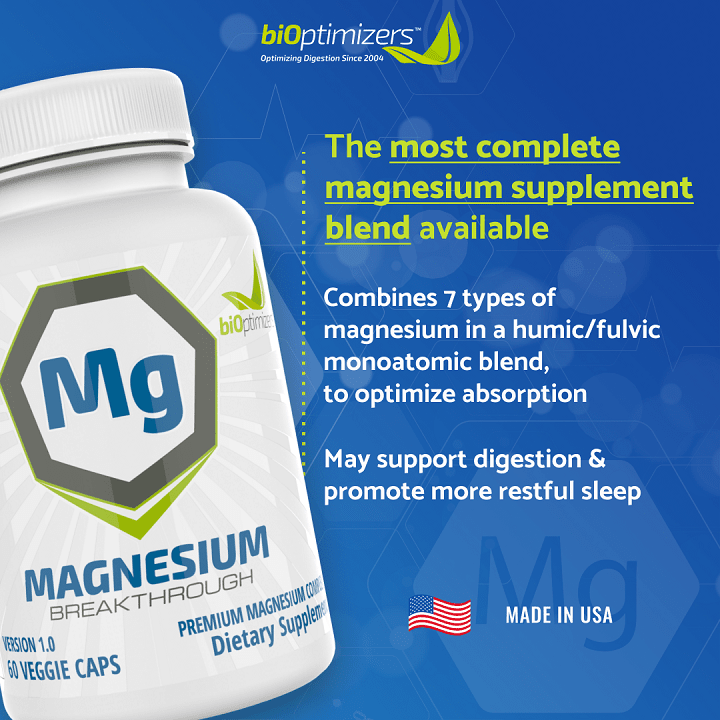
1. Introduction
Definition of stress and its effects on the body
Stress is a natural response of the body to any demand or threat. It is the body’s way of preparing to meet a challenge or cope with danger. Stress can be physical, emotional, or psychological and can be caused by a variety of factors such as work, relationships, illness, or financial problems.
The effects of stress on the body can be both short-term and long-term. In the short-term, stress triggers the “fight or flight” response, which releases hormones such as adrenaline and cortisol to increase heart rate, blood pressure, and blood sugar levels. This response is beneficial in the short-term as it helps the body to react quickly to a perceived threat.
However, when stress is prolonged, these hormonal changes can have negative effects on the body. Chronic stress has been linked to a variety of health problems such as heart disease, high blood pressure, diabetes, depression, anxiety, and sleep disorders. Stress can also weaken the immune system, making the body more susceptible to infections and illnesses.
Stress can also have an impact on mental health, leading to symptoms such as difficulty concentrating, irritability, and fatigue. Long-term stress can lead to burnout, depression, and anxiety.
It’s important to learn how to manage stress to prevent the negative effects it can have on the body and the mind.
Overview of herbs and supplements that are commonly used for stress relief
Herbs and supplements are commonly used as natural remedies to help manage stress and promote relaxation. Some of the most popular herbs and supplements used for stress relief include:
Ashwagandha: This herb is commonly used in Ayurvedic medicine and is believed to help reduce anxiety and stress by regulating cortisol levels in the body.
Lemon balm: Lemon balm is a member of the mint family and has been traditionally used to promote relaxation and reduce anxiety. It is believed to work by increasing GABA levels in the brain.
Rhodiola: Rhodiola is an adaptogenic herb that is believed to help the body cope with stress by increasing energy and reducing fatigue.
Holy basil: Holy basil, also known as tulsi, is an Ayurvedic herb that is traditionally used to promote mental clarity and reduce stress.
Valerian root: This herb is commonly used to promote sleep and reduce anxiety. It is believed to work by increasing GABA levels in the brain.
Magnesium: Magnesium is an essential mineral that is involved in many functions in the body, including muscle and nerve function. It is commonly used as a supplement to help reduce muscle tension and promote relaxation.
Omega-3 fatty acids: Omega-3 fatty acids are essential fatty acids that are believed to have anti-inflammatory properties and may help to reduce stress and anxiety.
B vitamins: B vitamins, particularly vitamin B12, are important for maintaining a healthy nervous system and may help to reduce stress.
Probiotics: Probiotics are beneficial bacteria that live in the gut. They are believed to help improve gut health and reduce inflammation, which can help to reduce stress.
It’s important to note that the effectiveness of herbs and supplements for stress relief may vary from person to person, and it’s always recommended to consult a healthcare professional before starting any new supplement or herb regimen.
2. Herbs for stress relief
Ashwagandha
Ashwagandha, also known as Withania somnifera, is an herb that is commonly used in Ayurvedic medicine to help reduce stress and anxiety. The root and berries of the ashwagandha plant are used in various forms, such as powders, capsules, and teas.
Traditionally, ashwagandha is believed to help balance the body’s stress response by regulating cortisol levels, which is a hormone that is released in response to stress. Studies have shown that ashwagandha may help to reduce symptoms of stress and anxiety, as well as improve cognitive function.
Ashwagandha is also believed to have other health benefits such as improving sleep quality, reducing inflammation, and improving brain function. In addition to its ability to reduce stress and anxiety, it is also traditionally used as a general tonic to promote overall health and well-being.
- NutriRise Organic Ashwagandha Root with Black Pepper Capsules – 120ct – 1300mg, Natural Stress & Mood Relief, Sleep Aid & Thyroid Support Supplement; Ayurvedic Nootropic for Focus & Energy
- Futurebiotics Ashwagandha Capsules Extra Strength 3000mg – Stress Relief Formula, Natural Mood Support, Stress, Focus, and Energy Support Supplement, 120 Capsules
Lemon balm
Lemon balm, also known as Melissa officinalis, is a herb that belongs to the mint family and is traditionally used to promote relaxation and reduce anxiety. The leaves of the lemon balm plant are used in various forms, such as teas, capsules, and essential oils.
The active compounds in lemon balm are believed to work by increasing the levels of GABA (gamma-aminobutyric acid) in the brain. GABA is a neurotransmitter that helps to reduce anxiety and promote relaxation. Studies have suggested that lemon balm may help to reduce symptoms of anxiety and improve mood.
Lemon balm is also believed to have other health benefits such as improving sleep quality, reducing inflammation, and promoting cognitive function. The herb is traditionally used to calm the nerves, improve digestion, and relieve headaches.
- OLLY Goodbye Stress Gummy, GABA, L-Theanine, Lemon Balm, Stress Relief Supplement, Berry – 42 Count
- Nature’s Way Premium Herbal Melissa Lemon Balm Leaf, 1,500 mg per serving, 100 VCaps
Rhodiola
Rhodiola, also known as Rhodiola rosea, is an adaptogenic herb that is commonly used to help the body cope with stress and increase energy. The root of the plant is used in various forms, such as capsules, teas, and tinctures.
Rhodiola is believed to work by helping the body adapt to stressors and improve the body’s ability to handle stress. It is also believed to have other health benefits such as reducing fatigue, improving mental performance, and reducing symptoms of depression.
Studies have shown that Rhodiola may help to reduce symptoms of stress and improve cognitive function, mood, and overall well-being. It’s also believed that Rhodiola can help to improve physical endurance and reduce the negative effects of stress on the body.
Holy basil
Holy basil, also known as tulsi in Ayurvedic medicine, is an herb that is traditionally used to promote mental clarity and reduce stress. The leaves of the holy basil plant are used in various forms, such as teas, capsules, and essential oils.
Holy basil is believed to work by reducing the stress hormone cortisol and increasing the “feel-good” hormone serotonin in the body. It is also believed to have other health benefits such as improving immune function, reducing inflammation and providing relief from respiratory issues.
Studies have shown that holy basil may help to reduce symptoms of stress and anxiety, and improve cognitive function. It is traditionally used to promote overall health and well-being in Ayurvedic medicine.
Valerian root
Valerian root is an herb that is commonly used to promote sleep and reduce anxiety. The root of the valerian plant is used in various forms, such as capsules, teas, and tinctures.
Valerian root is believed to work by increasing the levels of GABA (gamma-aminobutyric acid) in the brain. GABA is a neurotransmitter that helps to reduce anxiety and promote relaxation. Studies have suggested that valerian root may help to reduce symptoms of anxiety and improve sleep quality.
Valerian root is also believed to have other health benefits such as reducing muscle tension, improving cognitive function, and reducing symptoms of menopause. It is traditionally used to treat insomnia, nervousness, and headaches.
NOW Supplements, Valerian Root (Valeriana officinalis) 500 mg, Herbal Supplement, 250 Veg Capsules
Description of the herb, its traditional uses, and scientific evidence for its effectiveness in reducing stress
Valerian root is an herb that is commonly used to promote sleep and reduce anxiety. It is believed to work by increasing the levels of GABA (gamma-aminobutyric acid) in the brain, which is a neurotransmitter that helps to reduce anxiety and promote relaxation.
Valerian root has been used for centuries as a natural remedy for sleep disorders, anxiety, and other nervous conditions. It is traditionally used to treat insomnia, nervousness, and headaches.
There is scientific evidence to support the effectiveness of valerian root in reducing stress and improving sleep quality. Studies have shown that valerian root may help to reduce symptoms of anxiety, improve sleep quality, and increase the amount of time spent in deep sleep. It has also been found to be effective in reducing symptoms of menopause.
It’s important to note that more research is needed to confirm the effectiveness of valerian root for stress relief and to determine the safe and effective dosage. Valerian root is generally considered safe when taken in moderate doses, but excessive use may cause side effects such as drowsiness and dizziness. As always, it is recommended to consult a healthcare professional before taking any new supplement or herb, especially if you are pregnant, breastfeeding or taking any medication.
3. Supplements for stress relief
Magnesium
Magnesium is an essential mineral that plays an important role in many functions in the body, including muscle and nerve function, regulation of blood sugar levels, and blood pressure. It is commonly used as a supplement to help reduce muscle tension and promote relaxation.
Magnesium is believed to help reduce stress by regulating the levels of cortisol, a hormone that is released in response to stress. It also helps in regulating neurotransmitters that play a role in stress and anxiety.
Magnesium can be found in many foods such as leafy green vegetables, nuts, seeds, and whole grains. However, many people may not get enough magnesium in their diets, and a deficiency can contribute to symptoms of stress and anxiety.
Studies have shown that magnesium supplements may help to reduce symptoms of anxiety and improve mood. It also helps in improving sleep quality and reduces insomnia.
It’s important to note that more research is needed to confirm the effectiveness of magnesium for stress relief and to determine the safe and effective dosage. Magnesium is generally considered safe when taken in moderate doses, but excessive use may cause side effects such as diarrhea and abdominal cramps. As always, it is recommended to consult a healthcare professional before taking any new supplement or herb, especially if you are pregnant, breastfeeding or taking any medication.
Omega-3 fatty acids
Omega-3 fatty acids are a type of essential fatty acid that are important for maintaining overall health and wellness. They are commonly found in fish, such as salmon, mackerel, and sardines, as well as in plant-based sources such as flaxseed, chia seeds and walnuts. They can also be taken as supplements in the form of fish oil or flaxseed oil.
Omega-3 fatty acids are believed to have anti-inflammatory properties and may help to reduce stress and anxiety. They are also important for brain health and have been found to improve cognitive function and mood.
Studies have shown that omega-3 fatty acids may help to reduce symptoms of depression and anxiety, and improve overall well-being. They also help in reducing inflammation in the body which can contribute to stress.
It’s important to note that more research is needed to confirm the effectiveness of omega-3 fatty acids for stress relief and to determine the safe and effective dosage. Omega-3 fatty acids are generally considered safe when taken in moderate doses, but excessive use may cause side effects such as fishy burps or diarrhea. As always, it is recommended to consult a healthcare professional before taking any new supplement or herb, especially if you are pregnant, breastfeeding or taking any medication.
B vitamins
B vitamins are a group of essential vitamins that play an important role in maintaining overall health and wellness. They are commonly found in foods such as leafy green vegetables, nuts, seeds, and whole grains. They can also be taken as supplements.
B vitamins, particularly vitamin B12, are important for maintaining a healthy nervous system and may help to reduce stress by regulating the levels of neurotransmitters that play a role in stress and anxiety.
Studies have shown that B vitamins may help to reduce symptoms of depression and anxiety, and improve overall well-being. They also help in reducing fatigue and improve cognitive function.
It’s important to note that more research is needed to confirm the effectiveness of B vitamins for stress relief and to determine the safe and effective dosage. B vitamins are generally considered safe when taken in moderate doses, but excessive use may cause side effects such as stomach upset and skin rash. As always, it is recommended to consult a healthcare professional before taking any new supplement or herb, especially if you are pregnant, breastfeeding or taking any medication.
Nature’s Bounty Super B Complex with Vitamin C & Folic Acid, Immune & Energy Support, 150 tablets
Probiotics
Probiotics are beneficial bacteria that live in the gut. They are often referred to as “good bacteria” because they help to keep the gut microbiome balanced and support overall health and wellness. Probiotics can be found in fermented foods such as yogurt, kefir, sauerkraut and kimchi, as well as in supplement form.
Probiotics are believed to help reduce stress by regulating the gut-brain axis, which is the communication pathway between the gut and the brain. Studies have shown that probiotics may help to reduce symptoms of anxiety and depression by changing the levels of certain neurotransmitters in the brain. They can also help to improve gut health and reduce inflammation, which can contribute to stress.
It’s important to note that more research is needed to confirm the effectiveness of probiotics for stress relief and to determine the safe and effective dosage. Probiotics are generally considered safe when taken in moderate doses, but excessive use may cause side effects such as stomach upset or gas. As always, it is recommended to consult a healthcare professional before taking any new supplement or herb, especially if you are pregnant, breastfeeding or taking any medication.
4. Safety and precautions
Possible side effects and interactions of herbs and supplements
Herbs and supplements are natural remedies that can have beneficial effects on the body, but they can also have possible side effects and interactions with other medications. It is important to be aware of these potential risks before starting any new supplement or herb regimen.
Some of the possible side effects of herbs and supplements used for stress relief include:
- Ashwagandha: May cause stomach upset, diarrhea, and vomiting in some people.
- Lemon balm: May cause drowsiness or muscle relaxation.
- Rhodiola: May cause insomnia, dry mouth, and dizziness.
- Holy basil: May cause stomach upset or skin rash.
- Valerian root: May cause drowsiness and dizziness.
- Magnesium: May cause diarrhea and abdominal cramps.
- Omega-3 fatty acids: May cause fishy burps or diarrhea.
- B vitamins: May cause stomach upset and skin rash.
- Probiotics: May cause stomach upset or gas.
Herbs and supplements can also interact with other medications, such as blood thinners, antidepressants, and blood pressure medications, so it’s important to consult with a healthcare professional before starting any new supplement or herb regimen, especially if you are taking any medications.
In general, it’s also recommended to start with lower doses and gradually increase the dosage as needed. It’s also important to choose high-quality supplements from reputable manufacturers and to not exceed the recommended dosage.
Recommendations for dosage and duration of use
The recommended dosage and duration of use for herbs and supplements can vary depending on the specific product and the individual’s needs. It’s important to consult a healthcare professional before starting any new supplement or herb regimen, as they can give specific recommendations based on your health status and any other medications or supplements you may be taking.
Here are some general guidelines for dosage and duration of use for some of the herbs and supplements commonly used for stress relief:
- Ashwagandha: The recommended dosage is typically 300-500 mg per day. It is generally safe for long-term use, but it’s best to consult with a healthcare professional before taking it for an extended period of time.
- Lemon balm: The recommended dosage is typically 300-500 mg per day. It is generally safe for long-term use, but it’s best to consult with a healthcare professional before taking it for an extended period of time.
- Rhodiola: The recommended dosage is typically 100-600 mg per day. It is generally safe for long-term use, but it’s best to consult with a healthcare professional before taking it for an extended period of time.
- Holy basil: The recommended dosage is typically 300-500 mg per day. It is generally safe for long-term use, but it’s best to consult with a healthcare professional before taking it for an extended period of time.
- Valerian root: The recommended dosage is typically 300-500 mg per day. It is generally safe for short-term use, but it’s best to consult with a healthcare professional before taking it for an extended period of time. Long-term use may lead to dependence and difficulty sleeping without it.
- Magnesium: The recommended dosage is typically 200-400 mg per day. It is generally safe for long-term use, but it’s best to consult with a healthcare professional before taking it for an extended period of time, as excessive use may cause diarrhea and abdominal cramps.
- Omega-3 fatty acids: The recommended dosage is typically 600-1200 mg per day. It is generally safe for long-term use, but it’s best to consult with a healthcare professional before taking it for an extended period of time.
- B vitamins: The recommended dosage is typically 50-100 mg per day for B-complex supplements. It is generally safe for long-term use, but it’s best to consult with a healthcare professional before taking it for an extended period of time.
- Probiotics: The recommended dosage is typically 1-10 billion CFUs (colony forming units) per day. It is generally safe for long-term use, but it’s best to consult with a healthcare professional before taking it for an extended period of time.
It’s important to remember that these are general guidelines, and the specificrecommendations may vary depending on the individual’s needs and the specific product being used. Additionally, It’s also important to keep in mind that some supplements may take several weeks before you notice any effects, so it’s important to be patient and consistent with your use.
It’s also important to note that not all supplements and herbs are suitable for everyone, so it’s essential to consult with a healthcare professional before starting any new supplement or herb regimen, especially if you have any underlying health conditions or are taking any other medications. They can also help you determine the appropriate dosage and duration of use that is safe and effective for you.
5. Conclusion
- A summary of the most effective herbs and supplements for stress relief
Herbs and supplements can be a natural way to help reduce stress and improve overall well-being. Some of the most commonly used and effective herbs and supplements for stress relief include:
- Ashwagandha
- Lemon balm
- Rhodiola
- Holy basil
- Valerian root
- Magnesium
- Omega-3 fatty acids
- B vitamins
- Probiotics
It’s important to consult a healthcare professional before starting any new supplement or herb regimen, especially if you have any underlying health conditions or are taking any other medications. They can also help you determine the appropriate dosage and duration of use that is safe and effective for you.
- The importance of incorporating stress-relieving practices, such as yoga and meditation, in addition to taking herbs and supplements for optimal stress management.
Incorporating stress-relieving practices, such as yoga and meditation, in addition to taking herbs and supplements can be an effective way to manage stress and improve overall well-being.
Yoga and meditation are practices that have been used for centuries to promote relaxation and reduce stress. Yoga combines physical postures, breathing techniques, and meditation to improve physical and mental well-being. Meditation is a practice of focusing the mind on a particular object, thought, or activity to increase awareness, calmness, and relaxation.
Studies have shown that yoga and meditation can help to reduce symptoms of stress, anxiety, and depression by decreasing the levels of stress hormones, such as cortisol, and increasing the levels of “feel-good” hormones, such as serotonin and dopamine. These practices can also help to improve sleep quality, reduce inflammation, and improve overall well-being.
Taking herbs and supplements alone may not be enough to manage stress effectively, incorporating stress-relieving practices such as yoga and meditation can help to provide a holistic approach to stress management. It can provide long-term benefits that can’t be achieved by taking supplements or herbs alone. Additionally, it’s important to have a healthy lifestyle, adequate sleep, regular physical activity, and a balanced diet to help manage stress.
It’s also important to note that everyone’s stress management needs are different, and it’s essential to find what works best for you. Consult a healthcare professional, or a practitioner of yoga or meditation to guide you in finding the right approach for you.
Image credit: Image by gpointstudio on Freepik












